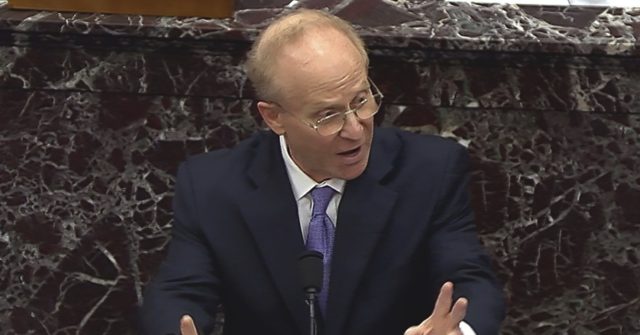Things are getting weird in Virginia.
Former Gov. Terry McAuliffe (D) has made his campaign all about Trump, and -- secondarily -- about the Charlottesville riot of August 2017, where the "fine people hoax" was born. (Trump never called the neo-Nazis "very fine people," but the Democrats and the media pretended he had -- for several years.)
So... it reeked of desperation when five individuals (including a woman and a black guy) dressed as "white supremacists" from Charlottesville, with tiki torches and all, and crashed a rally for Glenn Youngkin (R). The McAuliffe campaign suspiciously treated the five as if they were real, and one campaign spokesperson called them "disqualifying."
Then the prank began to unravel, and it looked as though the five might be Democrat staffers. The Virginia Democrats denied any involvement, and -- lo and behold! -- the anti-Trump "Lincoln Project," who purport to be some kind of Republicans, claimed responsibility.
Call it the "fine people hoax," hoax.
This week’s portion launches the great story of Abraham, who is told to leave everything of his life behind — except his immediate family — and to leave for “the Land that I shall show you.”
There’s something interesting in the fact that Abraham is told to leave his father’s house, as if breaking away from his father’s life — but his father, in fact, began the journey, moving from Ur to Haran (in last week’s portion). His father set a positive example — why should Abraham leave him?
Some obvious answers suggest themselves — adulthood, needing to make one’s own choices, his father not going far enough, etc.
But I think there is another answer. Abraham (known for the moment as Abram) needs to establish his own household. This is not just about making one’s own choice, but really about choosing one’s own starting point. It’s starting over.
Sometimes we start over in fundamental ways even if much that surrounds us remains the same. Sometimes the journey we have to ...
The story of Noah is familiar; the details, less so.
Noah is often seen as an ambivalent figure. He was righteous -- but only for his generation. What was his deficiency?
One answer suggests itself: knowing that the world was about to be flooded, he built an Ark for the animals and for his own family -- but did not try to save anyone else or to convince them to repent and change their ways (the prophet Jonah, later, would share that reluctance).
Abraham, later, would set himself apart by arguing with God -- with the Lord Himself! -- against the destruction of Sodom and Gomorrah, saying that they should be saved if there were enough righteous people to be found (there were not).
Still, Noah was good enough -- and sometimes, that really is sufficient to save the world. We don't need heroes every time -- just ordinary decency.
Hi all -- as I noted last month, I'm going to be closing down my Locals page, at least for tips and subscriptions -- I may keep the page up and the posts as well, but I'm no longer going to be accepting any kind of payment.
Look for cancelation in the very near future. Thank you for your support!













